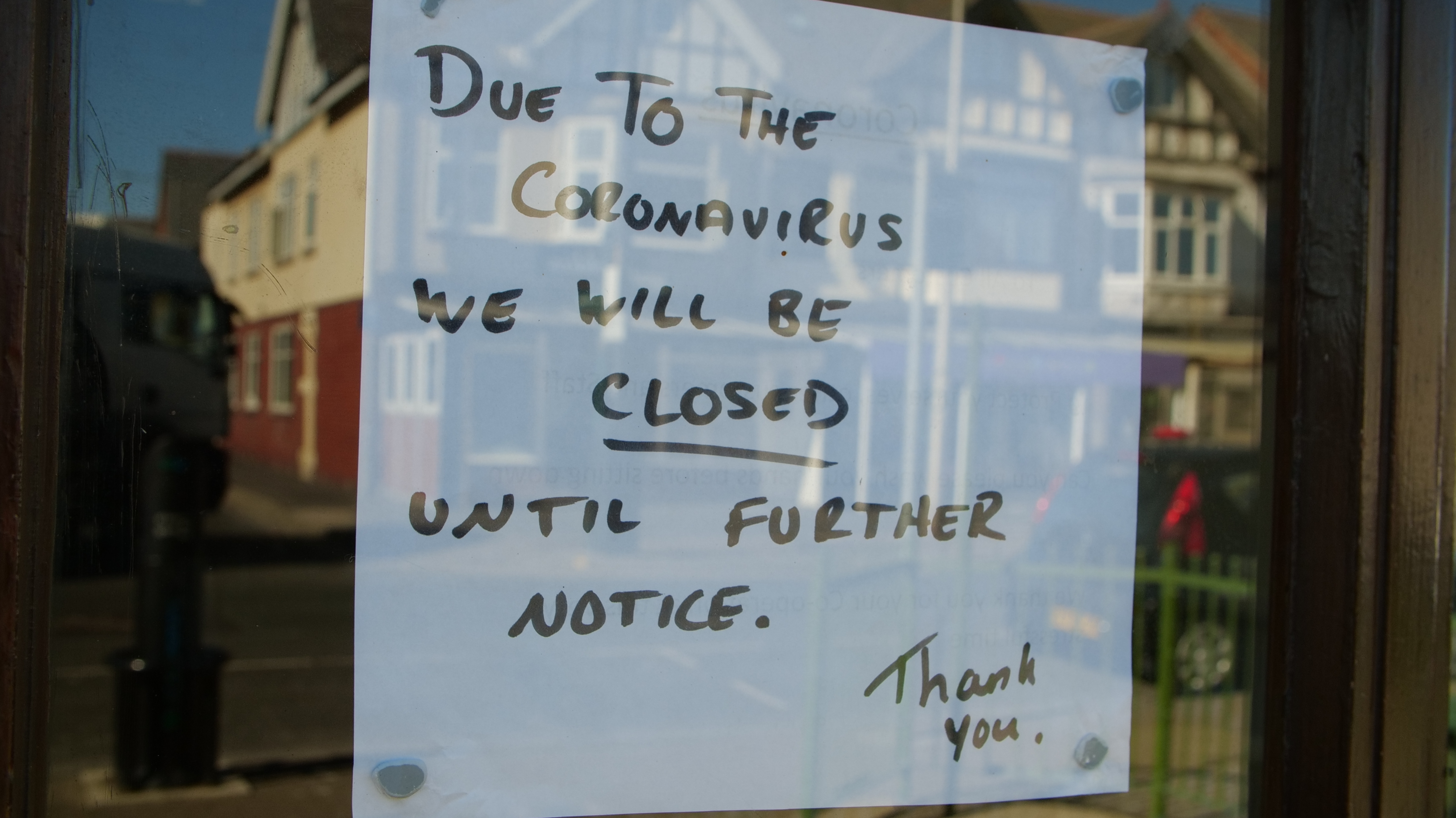
Photo: Business closure in England / Shutterstock
Small and medium-size enterprises (SMEs) in England have been severely affected by the disruptions caused by the pandemic COVID-19.
National and local lockdowns imposed by the British government, although necessary to prevent further life losses, have influenced an economic crisis in the country. The British economy (measured as changes in nominal GDP) contracted in Q1 2020, showing a slight improvement in Q2 and Q3 2020. Estimates such as the unemployment rate and losses in working hours reveal the slow recovery of the economy. The unemployment rate increased from 3.8% in Q3 2019 to 4.8% in Q3 2020. There were also 138 million fewer weekly hours worked between June and August 2020 in comparison to the period January-March 2020.
SMEs have been negatively impacted through both the supply and the demand side. On the supply side, SMEs have been affected by falls in capacity utilisation and by reductions in the supply of labour as employees work fewer hours due to different factors such as sickness and restrictions to movement (e.g., lockdowns). On the demand side, SMEs have been affected by falls in consumption as many households have reduced their expenditure driven by fear of contagion and losses in their real household disposable incomes.
Analysis by McKinsey & Company showed that 69% of the SMEs they surveyed in England perceived the economy as weak and 18% as extremely weak in May 2020. The same analysis showed that only 21% of the SMEs reported experiencing revenue losses prior to the pandemic compared to 80% that reported revenue losses in May 2020. Perceptions about the negative outlook of the economy are likely to have been influenced by the uncertainty related to lockdowns and the slow recovery of the economy despite government’s financial measures in support of the pandemic.
SMEs resilience during the pandemic
The government’s measures in support of the pandemic allowed SMEs to face the immediate pressures (e.g., revenue losses and liquidity constraints) caused by the pandemic COVID-19. The government provided support through different measures such as businesses rates reliefs, a Coronavirus Business Interruption Loan Scheme, and a £2.2bn grant scheme for small businesses.
Yet, many SMEs have recognised that to remain sustainable in the aftermath of the pandemic they will have to innovate and to adapt operational strategies that allow them to quickly respond to the emerging needs of the British society. In 2020, there was a significant increase in online consumption and in social media interactions, and more people working from home who had to enhance their IT skills.
Many SMEs in England have seen the COVID-19 crisis as an opportunity to developed different innovative strategies to remain resilient and sustainable in the longer-term. The enhancement of digital capabilities has been a widely strategy adopted by SMEs.
Analysis by Forbes showed that British SMEs are increasingly open to using financial technologies (Fintech) to support their business’ needs. Four in five (80%) owners running a small business said they would now use digital tools, including Fintech apps, to have more control over their finances. Nonetheless, many SMEs’ owners also recognise the challenges around adopting Fintech technologies such as the lack of available information and training on how to use these technologies. British SMEs have also increased their online presence through e-commerce. Prior to the pandemic, some businesses had their own websites but they did not use these platforms to engage in online sells. After traditional selling channels were cut off during lockdowns, many small businesses perceived online selling as a necessary strategy for their business.
Despite the negative impact that the pandemic has had on British SMEs, they have shown resilience and their capability to innovate in times of crisis.
Tania Arrieta is a Research Assistant in the REBOUND project and PhD student in the Work and Employment Division of the University of Leicester.
Comments are closed